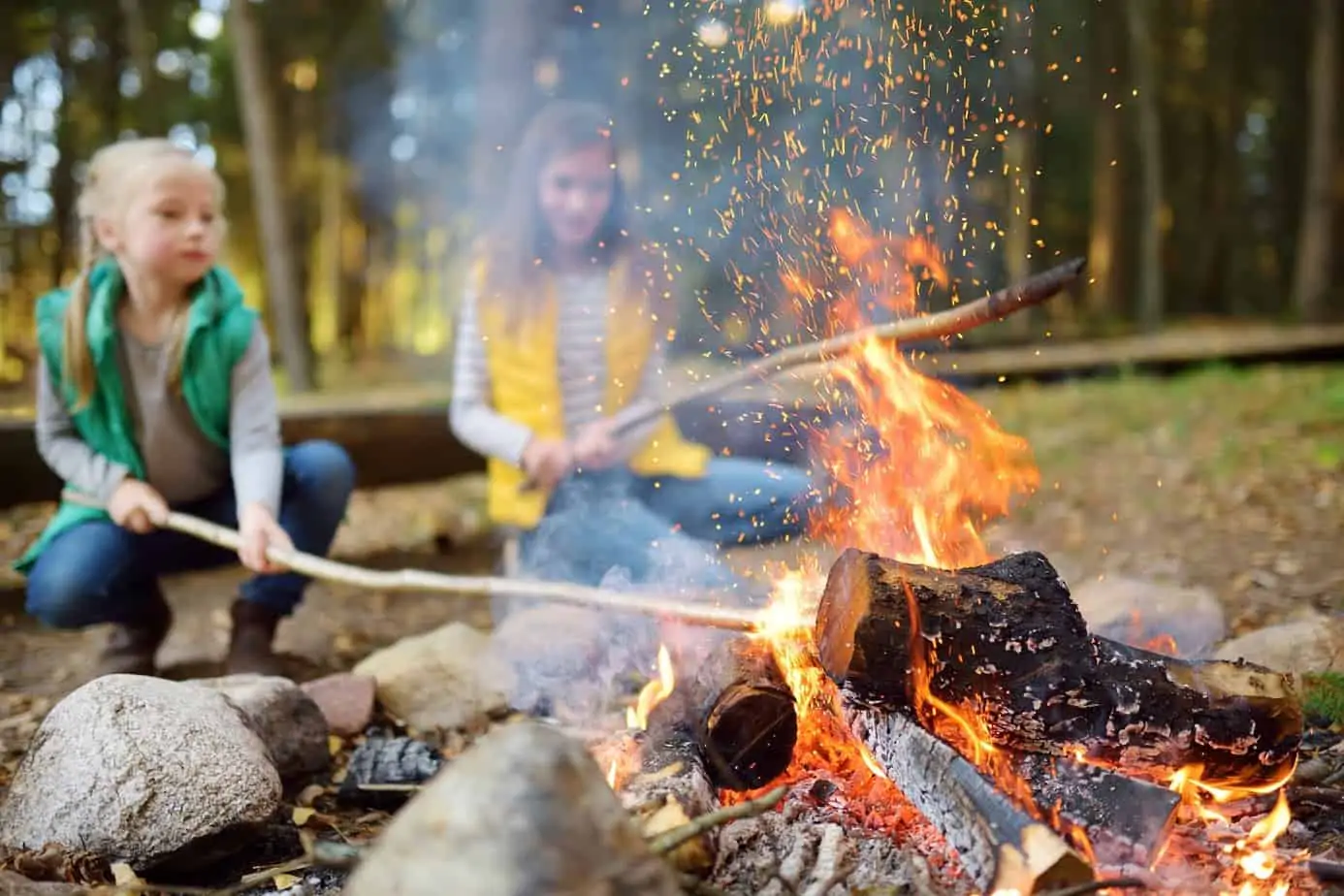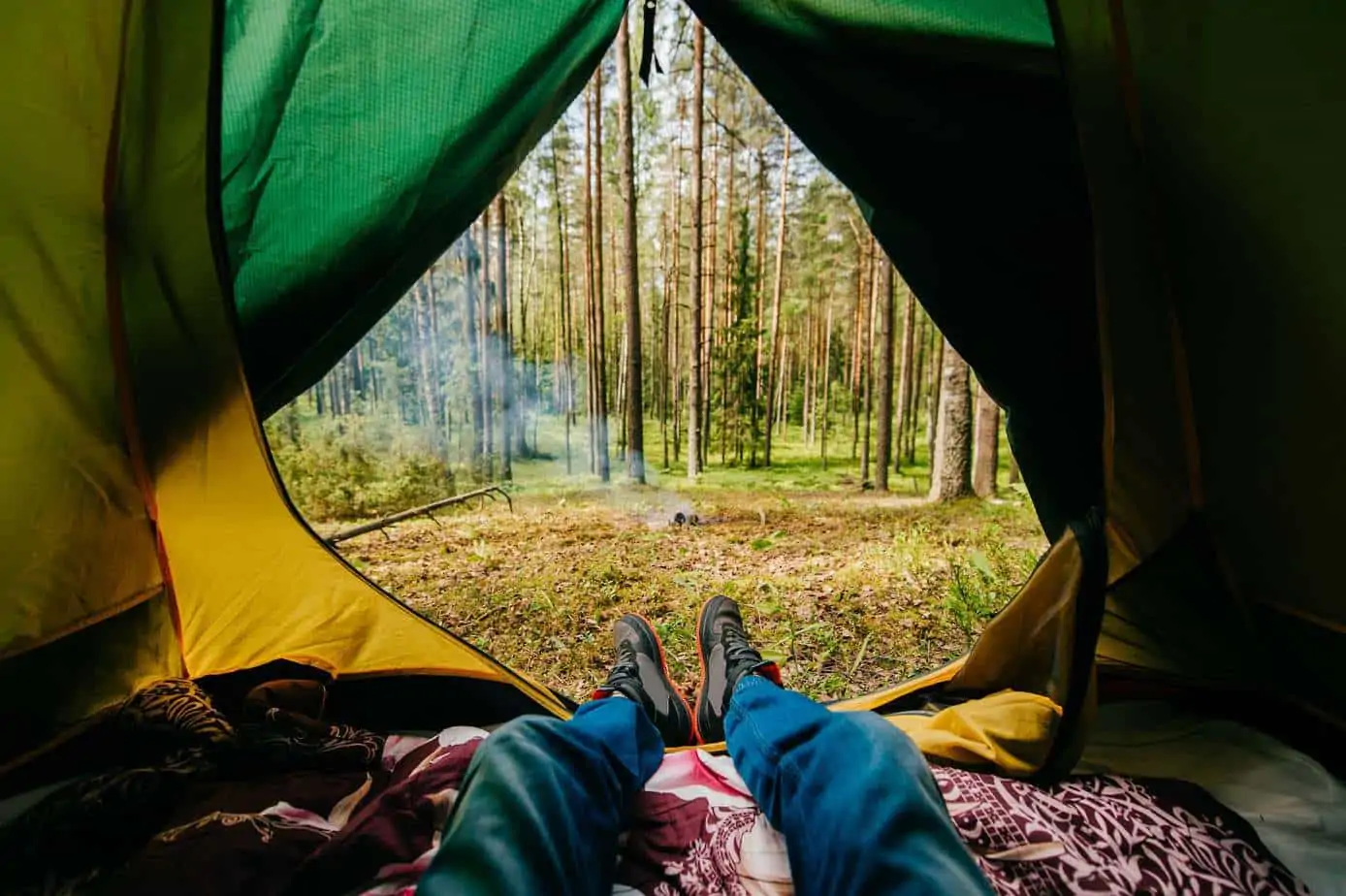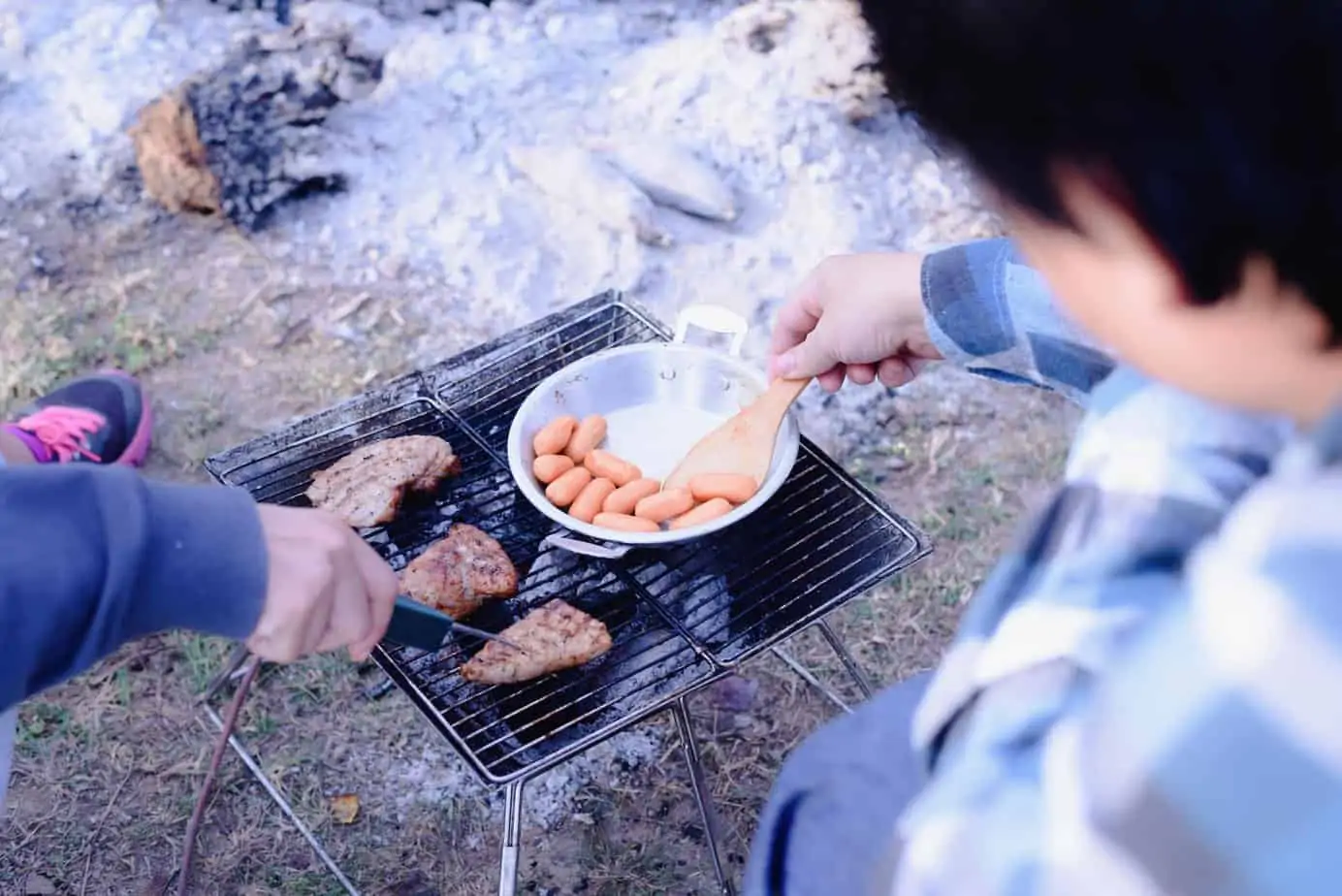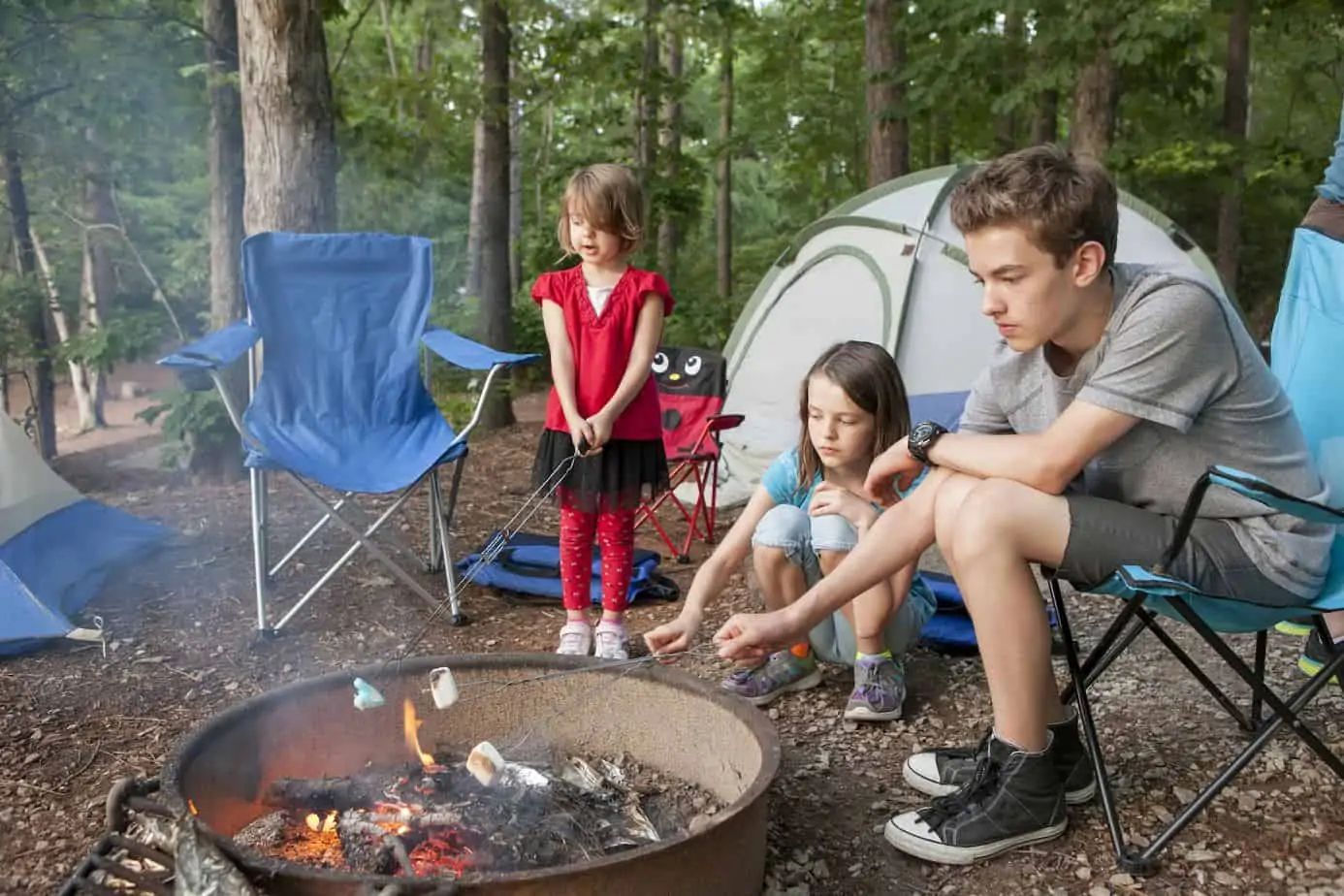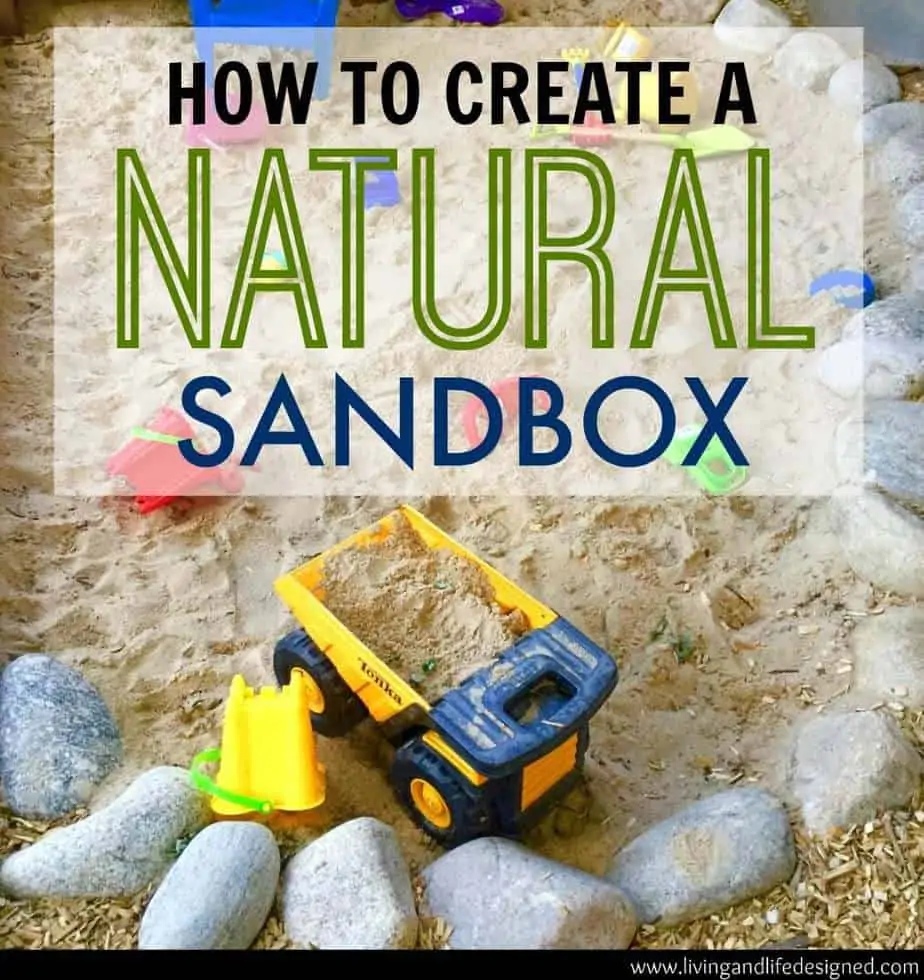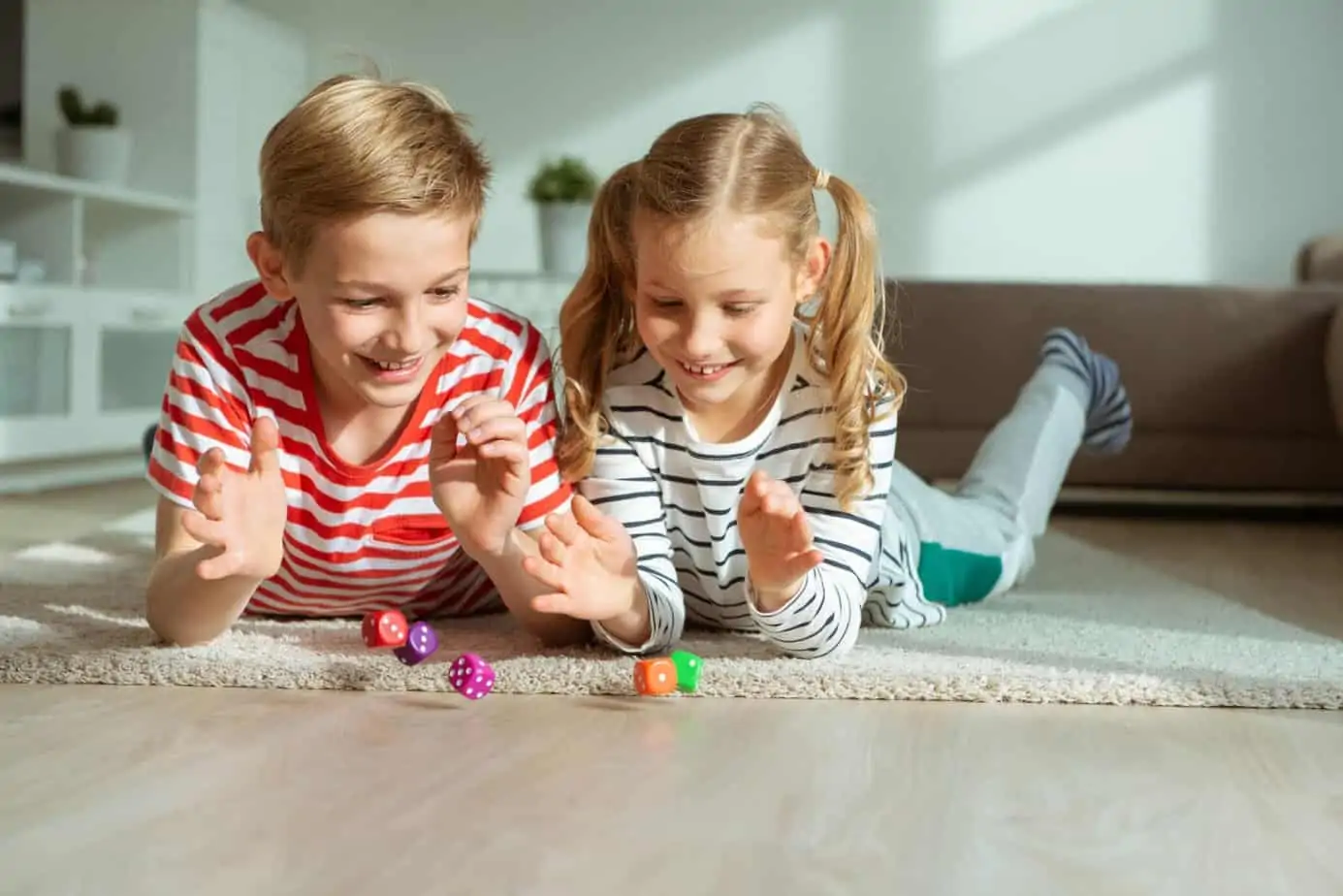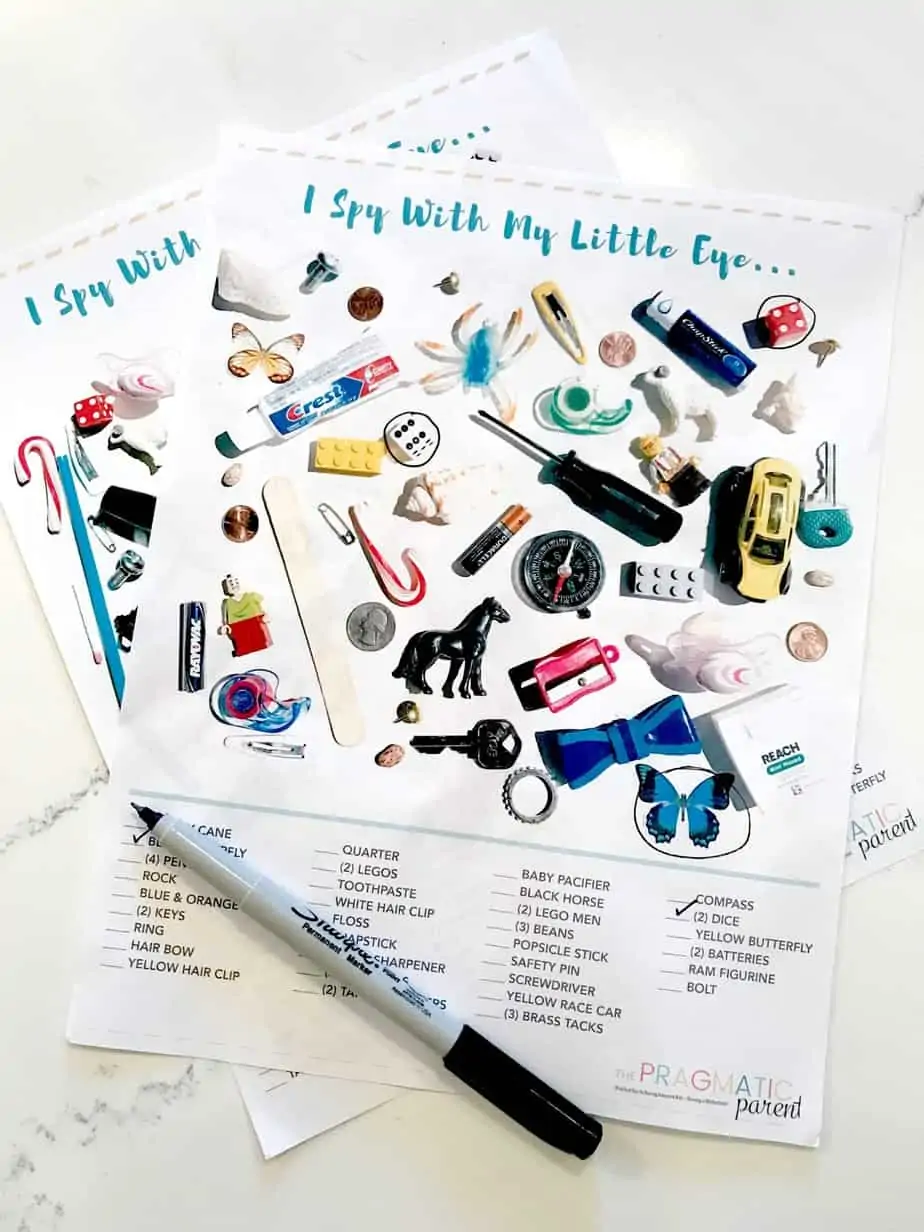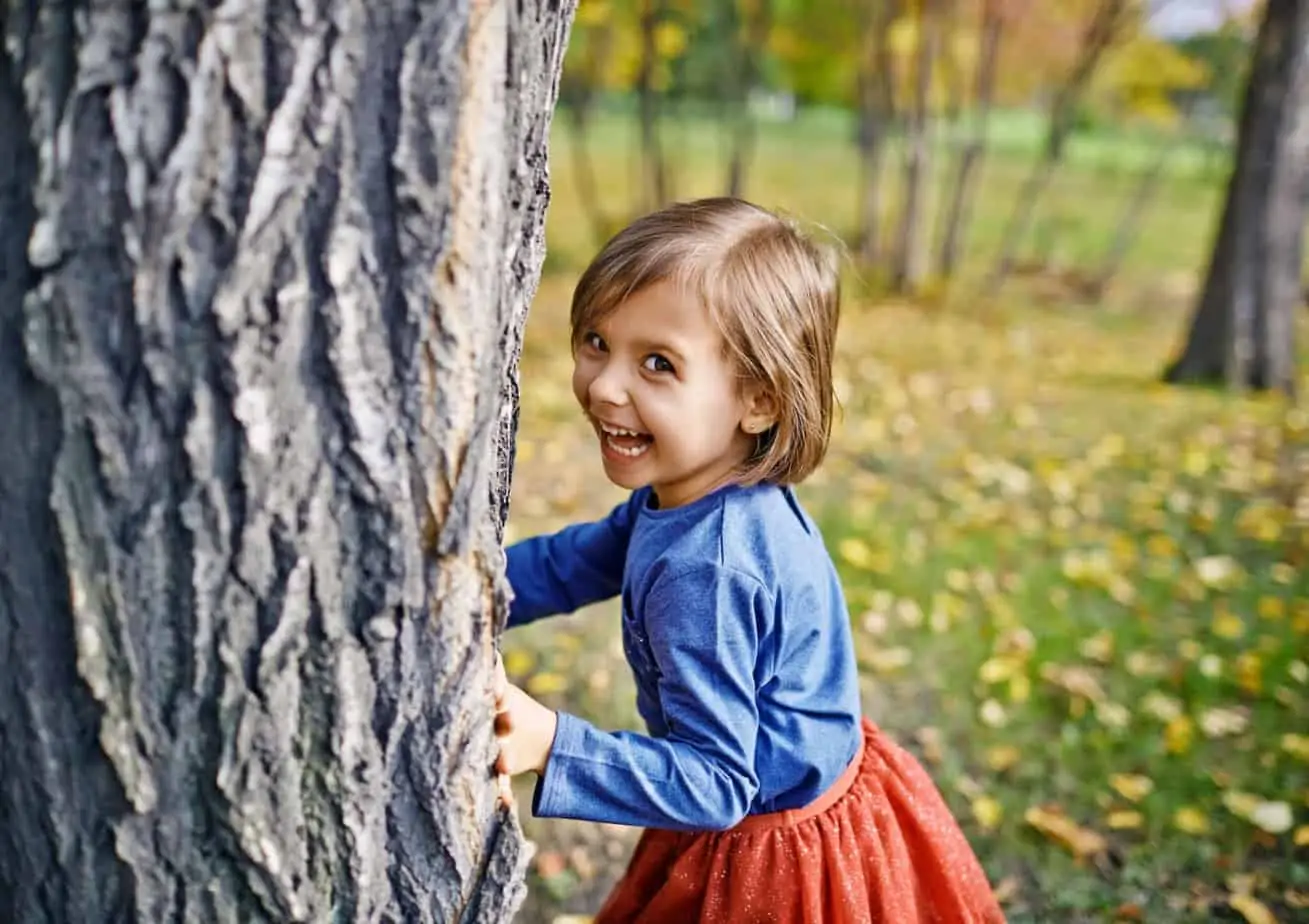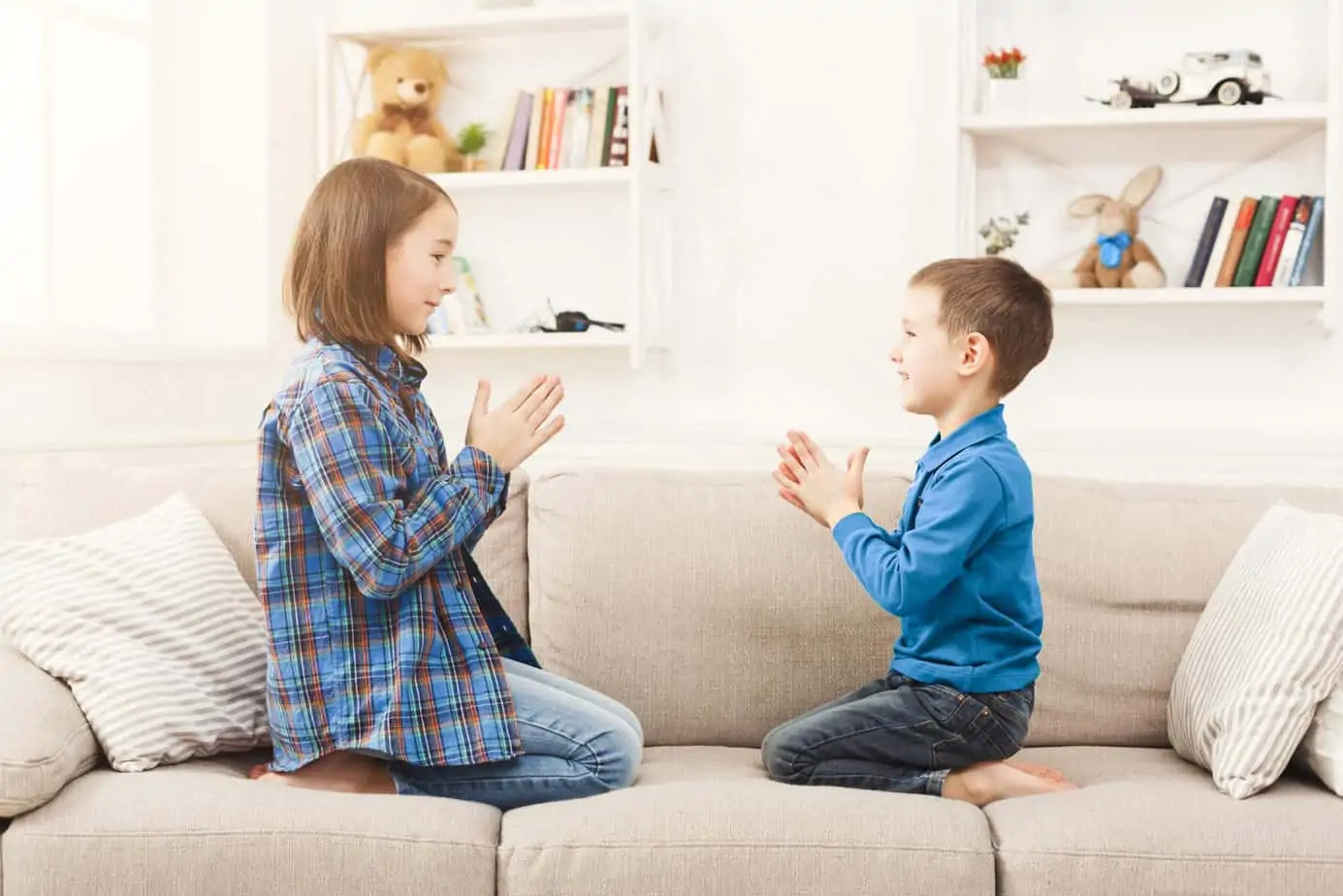10 make or break tent camping tips for beginners and must-know camping hacks to help you have a great first time camping experience.
Tent Camping Hacks when you’re going Camping with Kids
If there are levels assigned to camping experience, my husband is hands-down a beginner.
He’d been camping exactly one time before we met almost 20 years ago and so I’ve been told, the story goes that the one camping experience from college involved sleeping in the back of a car when they couldn’t figure out how to put their tent up properly.
Unfortunately for me, for the first few years we camped with the kids, it was like pulling teeth even trying to get him to camp with the kids and I in the backyard before I dare set foot in the great outdoors with him in the passenger seat.
Having family outdoor adventures are something I love, but I’ll also be the first to admit, the older I get, the less I’m itching to camp in a tent on the hard earth floor.
That’s why it didn’t take me long to realize a few summers ago, that my kids were counting on me to re-embrace tent camping and be the adventurous girl from my youth (minus that one time we camped in a snow storm or tried to find a camping spot at 10pm at night in the pitch black.)
I know a few camping tips, and many hacks I can use to get us out into the wilderness and away from technology and crowds.
Camping isn’t scary, and doesn’t have to be hard or stressful. Maybe that’s the biggest misconception about camping, especially if you’re a beginner. Not to worry, I have plenty of tent camping (and camping in general) tips whether you’re new to camping, or taking the family camping for the first time, I’ll help you feel ready and prepared for a fantastic camping experience.
Camping Tips for Beginning Campers
Heading out for your first tent camping experience can be a daunting experience, especially if you’re trying it out for the first time in an unfamiliar area or just read a few articles that have now made you second-guess your camping choices.
Thankfully there are many kid-friendly camp sites across the country to make this experience even easier.
The good news is you won’t need as much as you may think to get started, and the basics of camping are actually very simple.
Here’s what you need to know to have a great first camping experience, and head into your campsite like a pro from the start:
1) Get the Basic Tent Camping Supplies
Using a simple camping checklist is a thorough way to make sure you have everything you need. If you’re just starting out camping, there’s no need to rush out and buy everything new. Ask to borrow gear from friends, or purchase second-hand at thrift stores or from garage sales.
If you find you don’t enjoy camping, then you won’t have spent hundreds of dollars on gear you’re now stuck with. If you love camping, then you can acquire the gear you want to upgrade or have as your own, as you go.
Before you begin packing, check your gear to make sure everything works, fits and doesn’t require any repairs. It’d be a disappointment to get to your camping spot, only to find you’re missing a tent pole and can’t assemble your camping tent.
Here’s a list of basic camping supplies you’ll need:
- Tent to fit the number of people camping (a simple tent like this one with a rain fly works great!)
- Air mattress or sleeping pads (my family prefers sleeping pads because we don’t have to worry about inflating and bringing an air pump.)
- Sleeping bags and extra blankets
- Portable camping / pop-up chairs (something easy and convenient like this chair works)
- Camping kitchen supplies (stove and propane, cooking pans & utensils, food, cooler, water)
- Reusable water bottle and plenty of water supplies
- Hand towels / paper towels
- Wet wipes
- Flashlights / headlamps
- Extra clothing for cold weather
- Appropriate clothing and footwear
- Fire supplies or an ax to collect firewood with
- First aid / survival kit and toiletries
- Matches
- Tarp (can save the day if there’s rain!)
- Trash bags
For a more extensive camping checklist, check out this article and grab the free printable camping checklist and make sure you don’t forget anything on your trip.
2) Test Your Gear & Figure out how Your Supplies Work
I highly recommend you test any new or borrowed gear before your camping trip.
Make sure you set up your tent not only to familiarize yourself with how to do it, but more importantly, make sure you aren’t missing any supplies (like a tent pole or rain cover) and that all your gear will fit inside.
Cramped camping doesn’t make for fun camping, in my opinion!
Make sure your first aid kit has supplies, your flashlights and battery-operated pieces have batteries and you’ve packed extra just in case, and the odds and ends you plan on bringing along function properly.
3) Make a Reservation & Familiarize Yourself with the Area Ahead of Time
Camping is incredibly popular and if the option exists – make sure you reserve a spot at your camping destination well ahead of time. Many locations open up reservations 3 – 6 months in advance and spots can fill up quickly, so be sure to secure your reservation.
Holidays, 3-day weekends and Summer and Fall months are especially popular.
When you reserve your campsite, you’ll also be able to familiarize yourself with any amenities on the campground. Some campgrounds have bathrooms, or shower access and will have regulations on pets or if you can bring in your own firewood or need to purchase from their general store.
This will also help you pack accordingly, knowing what you, cannot and should bring to your campsite.
4) Plan & Prepare Your Meals Ahead of Time
There’s a lot of prep that goes into camping, but it’s all so you can set up your campsite and then sit back and enjoy the whole camping experience without stress, or not knowing what’s for dinner (or breakfast.)
Preparing food ahead of time can save you so much time!
Here are 30 Stress-Free & Easy Camping Food Ideas you can prepare ahead of time and include breakfast, lunch, dinner and dessert options. Most of the camping food ideas can simple and can be warmed up over your camp stove or fire pit with a skillet.
Pre-made foil packs are one of the simplest ways to prepare for yummy and quick camping food, and don’t make hardly any mess or much clean-up.
5) Make a Plan for Activities & Fun
You don’t want to get to your campsite, set it up and then get stuck looking on your phone. There are so many things to do when you’re camping! Of course, bringing a book and setting up a hammock is relaxing and can be much-needed, but if you’re camping with kids, this is often the last thing you’ll have time to do.
Research the area or campground you have a reservation at for activities such as:
- hiking
- mountain biking
- swimming
- kayaking / paddle-boarding
- fishing
- boating
- horseback riding
Related: Camping with Kids: 21 Camping Games & Activities to Entertain Children
6) Arrive to Set-up Your Campsite in the Daylight
The last thing you want to do is set up your campsite in the dark. The great outdoors does not have light switches and floodlights so setting up your tent in the dark is a recipe for frustration and maybe a few curse words.
Arrive in the afternoon if you can, to set up your campsite. It will take you a while to get set-up, and daylight is a value asset you want to use to your advantage.
Check with the campground to see when you can arrive and set up your tent and campsite.
- Look for a flat area that’s free from large rocks and debris to set up your tent.
- Trees for shade are a good thing, trees with branches that can fall on your tent or drop limbs during a storm or high winds is a hazard.
When you set up your campsite, make sure you have a way to illuminate the area. This keeps you, and your family safe from tripping hazards and able to find what you need.
At the bare minimum, you’ll want to bring a headlamp and flashlights, but a camping lantern, solar powered string lights, a tent light and glow-in-the-dark tent rope are a good way to add more light to your campsite and prevent falls and injuries in the dark.
Light hack: Strap a headlamp facing inside to a jug of water and you’ll have an instant lantern you can carry by the handle around, or keep on the table to help light your kitchen area.
7) Safe Food & Trash Storage Storage
When I was about the age of five, my family went camping in our large van. I was sleeping in my sleeping bag on the floor when my whole family woke up to our van rocking back and forth. My parents had put our cooler with food under our van and guess what was trying to reach it by moving our car? A bear.
It’s really important to put your cooler and trash storage up high or in a secure area that cannot be reached by wild animals. If possible, put coolers and food items in your car, but never inside or near your tent, or under your car.
For trash bags, put this at your campground’s trash site, or hang it in a tree away from your campsite in a tree or in your car, if you have to. (Bring rope for this!)
8) Start your Campfire While It’s Still Light
Always check to see if there’s a fire ban in your area before you start a campfire.
If you’re able to have a campfire, then it’s best to get this started while it’s still light outside. You’ll also want to make sure the firewood you use is dry because damp wood is difficult to light. If you have to get firewood or cut your own, you’ll need daylight and some time to do this.
You can use fire starters to help you light the fire quickly, or here are some fire hacks to help you get started:
- corn chips / doritos work as extra tinder
- bring along instant-light charcoal
- bring along cotton balls soaked in vaseline
- cotton pads dipped in wax work too!
Don’t forget matches or a long lighter to help you get the fire started! After all, what’s a camping trip without a campfire and yummy s’mores.
Campfire hack: add sage to your campfire and it’ll help to keep mosquitos and bothersome bugs at bay.
9) Always Bring Extra Layers for Cold Nights
Tent camping can get pretty cold at night and one layer from your sleeping bag may not keep you warm.
It’s best to pack extra blankets to layer on the top, as well as extra clothing like sweaters, long-sleeve tops, warm hats/beanies and even jackets just in case you need them during a chilly night.
If your pets are camping with you, bring an extra blanket or two to keep them warm and from shivering, too.
Camping Tip: Instead of bringing pillows, pack jackets inside of pillow cases. If you have to use the bathroom in the middle of the night, you can quickly find and throw on your jacket before going outside.
10) Be Hip to Campsite Etiquette
Knowing and practicing camping etiquette will make your experience – can your neighbors – fun, and you a responsible camper.
Campground etiquette tips to know & follow:
- Find out when quiet time is and be aware of this time. Turn off music, don’t be loud and respect others who are camping nearby and can hear noise coming from your campsite.
- Don’t walk into someone else’s campsite and certainly don’t want through their campsite on your way somewhere, even if they’re not there.
- Don’t bring in outside firewood – if you don’t live in the immediate area, don’t bring in your own firewood. Check the campground or general store to purchase firewood. Bringing in outside wood can spread pests not native to the area and is harmful to the local ecosystem.
- Keep your pets on a leash and don’t let them wander into other campsites.
- Only use the fire ring in your campsite, no fire outside of this designated area and do not burn trash in your campfire.
- Keep your campsite clean and free from trash, and clean it up before you pack up and leave.
What you Think You Need, But Don’t:
I’ve had my share of overpacked camping trips. Many times I brought home loads of gear and supplies I thought we’d need, but then, didn’t touch. Here are some things you might not need:
- Picnic table – check to see if your campsite already has one and then you won’t have to pack chairs and a table.
- Camping games and board games – there will be plenty to keep you occupied, I promise.
- Screen room tent – instead of staying inside a mesh tent to keep bugs out, just pack bug spray or add sage to your campfire to keep them away.
- Electronics – you’re in the great outdoors, enjoy it without screens!
- Solar powered shower… they don’t exactly work as promised.
More Camping Resources:
- Handy Printable Family Camping Checklist (for Fun Camping with Kids)
- Camping with Kids: 21 Camping Games & Activities to Entertain Kids
- 10 Essentials for Camping with Kids You Don’t Want to Forget
- 30 Stress-Free & Easy Camping Food Ideas
- Genius Hacks to Make Camping with Kids Fun & Stress-Free
- Explore the Outdoors – Sensory Scavenger Hunt for Kids (Free Printable)
Want even more?
Shop All Parenting Resources
Shop all of our parenting resources from self-regulation tools and managing big emotions to building self esteem and confidence. There are resources for all seasons of life!
